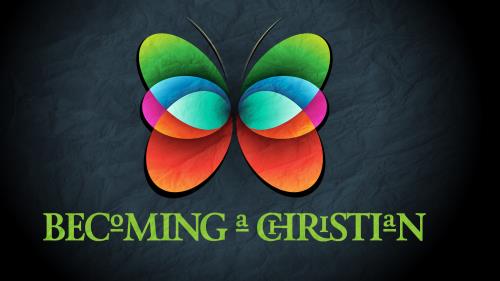-
Live In True Repentance!
Contributed by Jason Zahn on Nov 28, 2017 (message contributor)
Summary: The voice of John the Baptist still calls people forth to repentance today as we prepare to meet our Lord at his Second Coming!
“The issue at hand is a great one, the chief doctrine of the Gospel, the forgiveness of sins” (Apology of the Augsburg Confession, Tappert, 184.10). That’s how Philip Melancthon, a contemporary of Luther, sized up the subject of repentance when he wrote the Apology (or Defense) of the Augsburg Confession in 1530-1531. It’s this very subject that John the Baptist spent his entire ministry proclaiming. His voice still rings clear today in the words of the text, “Repent, for the kingdom of heaven is near” (Matthew 3:2).
But what exactly did John the Baptist mean by that? What exactly does God have in mind when he calls all people to repentance through John the Baptist and others? That is the question which God himself answers for us through John the Baptist in the text we are considering this morning. Our God is calling us to: Live in True Repentance. Live in true repentance 1) the kind that works on us from the outside in. Live in true repentance 2) the kind that changes us from the inside out.
The Greek word that God uses to describe true repentance is: metanoia. This is what that word means: “a change of heart, turning from one’s sins,” (UBS Dictionary), that also includes, “a change of mind leading to change of behavior” (Friberg Lexicon). It’s possible that the English word, “repent,” doesn’t fully summarize all of those thoughts for us. Perhaps a more comprehensive English term would be “convert.” When God calls us to true repentance he is calling for conversion, conversion from the people we are by nature - to become and remain his people by faith in his promises.
John the Baptist was well aware that this kind of radical change, this kind of true repentance, isn’t something that people can produce within themselves by nature. Why? Because even from the first moments of their lives all people conceived by sinful, human beings inherit a sinful nature from their parents. That means that even at the point of conception all people are spiritual wastelands – devoid of any true, spiritual life. This spiritual reality is reinforced by the physical surroundings in which God called John to address his hearers. John preached to them in the wilderness in Judea – a rough region of barren cliffs near the Dead Sea. Even John’s appearance is a stern sermon exposing the natural inclinations of the inbred sin of human nature that continually scorches the soul with the hot, arid breezes of selfish materialism. John was a living illustration of how little people really need for physical survival on this earth. His plain clothing and his Spartan diet were a powerful preaching against the natural, sinful preference that humans have to be consumed by the pursuit of earthly prosperity rather than focusing on amassing true and lasting treasure in heaven.
Clearly a radical change is necessary. John the Baptist understood plainly that the only way for this radical change, this conversion, this true repentance to take place is if God himself were to bring the change about. That’s exactly what God intends to do through his powerful tools – his Word and his Sacrament of baptism. Just as Isaiah foretold – John the Baptist made use of these powerful tools of God. Listen to what happened as he did , “People went out to him from Jerusalem and all Judea and the whole region of the Jordan ” (Matthew 3:5). A radical change took place in the hearts and lives of these people. They were drawn out into the desert, some coming from many miles away, to hear the spiritually empowering and enriching words of the living God. As they listened to this powerful message God transformed them from the outside in. As his Word entered their ears and spoke to their hearts something marvelous happened – they began confessing their sins! They fessed up to their guilt. That’s something that human beings won’t typically do – isn’t that why our courts are filled to overflowing today?! So what prompted them to do it? They wanted to experience this baptism for the forgiveness of their sins. They wanted God to work on them from the outside in as John applied the waters of baptism that gave and assured them that God had forgiven all their sins. Their hearts that were once nothing but a spiritual wasteland became places bursting with new spiritual life. That’s the life that God himself created and sustained in their hearts through his promises offered through water and his Word. That’s the life of faith! That’s a real conversion! That’s true repentance!
That’s exactly what God works in our lives through his powerful tools – his Word and his Sacrament of baptism. He’s brought forth spiritual life in our hearts that were once steeped in the deadness of unbelief. He’s watered our souls with his Gospel message in Word and sacrament causing the green pasture of faith to spring forth from the naturally barren wasteland of our hearts. He works on us from the outside in as he calls and empowers us to live a life of repentance.

 Sermon Central
Sermon Central



